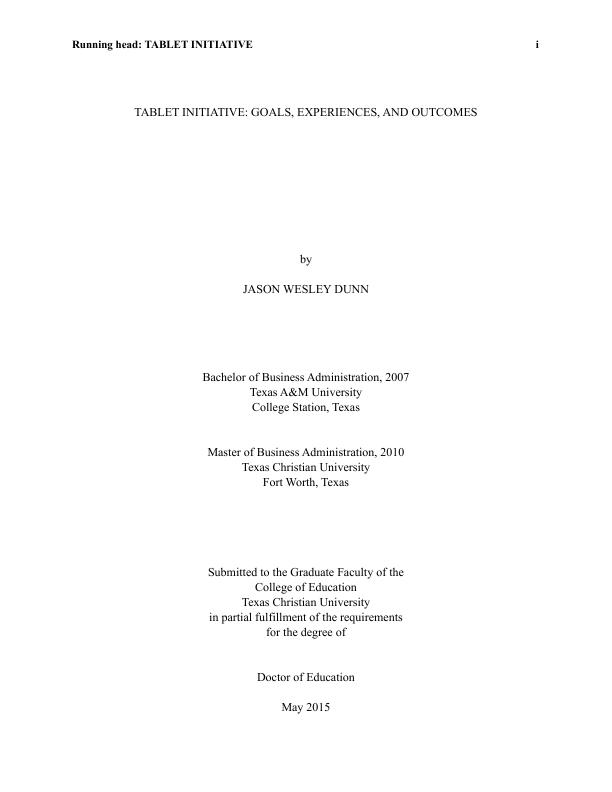Tablet initiative: goals, experiences, and outcomesShow full item record
| Title | Tablet initiative: goals, experiences, and outcomes |
|---|---|
| Author | Dunn, Jason Wesley |
| Date | 2015 |
| Genre | Dissertation |
| Degree | Doctor of Education |
| Abstract | The incorporation of technology into schools has a profound impact on students, educators, and leaders. There are a number of variables to consider when undertaking a district implementation. This study was aimed at understanding the experiences of a tablet initiative with a focus on leadership, benefits, drawbacks, and teacher perception. Leaders must contend with the guidance and vision of a technology change initiative along with school and district culture. Teachers have to adjust to a changing role, shifting from the source of information to a facilitator of learning. Students take on technology use in an educational context which can oppose the typical personal use of a mobile device. This qualitative study looked at three schools in the same feeder system within a district. The goal was to understand the experiences within each of these campuses as well as across them.^The experiences of staff, students, and leaders were shared through surveys, interviews, focus groups, and observations. Leaders at each campus expressed a desire to see students gain access to technology and information as well as higher engagement. Data also revealed an inability to articulate change goals from a number of staff. Overall a lack of growth toward district goals was found due to issues of uneven access, misuse, and a lack of understanding of frequently used terms. Teachers perceived the implementation as the future of education and a way to move towards a digital classroom. They also viewed professional development as necessary for success but perceived students as already "savvy" with technology while teachers were lagging behind. The study findings suggest a clear vision needs to be communicated by leaders along with a common understanding of frequently used vocabulary. As technology is incorporated into schools, uniform access to hardware is foundational.^Rethinking teaching practices with technology should also occur with emphasis on pedagogy and content. Information literacy should be taught consistently and student use of technology should be monitored. Future research should continue to explore the role of leadership, vision, effectiveness, and perceptions. |
| Link | https://repository.tcu.edu/handle/116099117/8316 |
| Department | Education |
| Advisor | Jimerson, Jo Beth |
Files in this item
This item appears in the following Collection(s)
- Doctoral Dissertations [1526]
© TCU Library 2015 | Contact Special Collections |
HTML Sitemap



